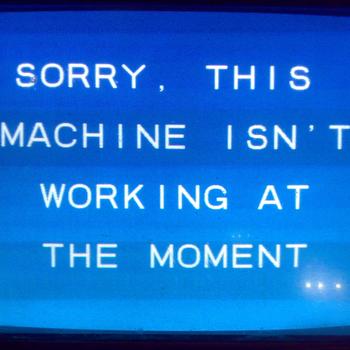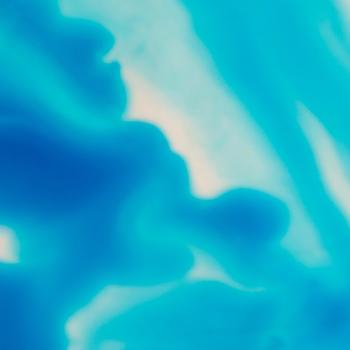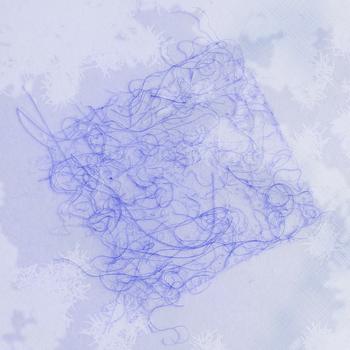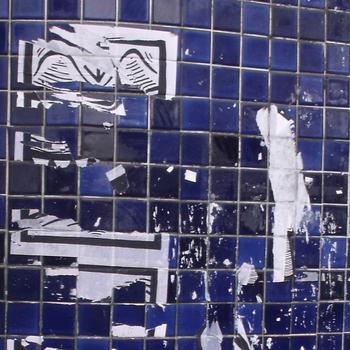Digitalbalkon (2020–2022)
The working and reading group #digitalbalkon transcended different research fields by addressing the shared issue of digitality in its multiple dimensions. From reflecting on textual poetics in the digital age to discussing theoretical foundations, transmedial aesthetic bodies, non-human actors or the transformation of research environments, #digitalbalkon initiated a fortnightly conversation between Principal Investigators, Senior Fellows, Postdoctoral Researchers and Doctoral Researchers, usually starting from a reading or artwork suggested by one of its members.
Neigungsgruppe Rezeption (2020–2022)
The interdisciplinary Neigungsgruppe Rezeption approached the theoretical concept of reception from a plurality of perspectives represented by the diverse backgrounds of its members. While reception is usually understood as an accepted aspect of tradition, whereby predecessors influence their successors, the reading group set out to question that concept: How does imitation modify its sources? What happens when a work explicitly acknowledges or omits a possible debt to its predecessors? What are the external factors that shape reciprocal influence in a tradition? And what are the overall conditions for the creation of a transtemporal cultural community? Working with concepts such as network, resonance and translation, the group pursued these questions in monthly meetings across such topics as visual and literary culture, modern science fiction and the Renaissance epic, contemporary world literature and early modern philosophy.
Participants: Dr. Anna Degler, Doz. Mag. Dr. Sergius Kodera, Nicolas Longinotti, Fabius Mayland, Lukas Regeler, Dr. Bart Soethaert, Prof. Dr. Anita Traninger, Jana Weiß (external guest), Luca Lil Wirth
Gedächtnisakademie (2020–2023)
The project "Arts of Memory", which explores the historical arts of memory as transtemporal and transcultural modes of community building, has become a hub for other projects at the Cluster that are interested in questions of memory, materiality, text-image-relations and assemblage as a critical concept. Members of these projects have gathered for a series of meetings, in particular in the year 2021, to present and discuss their respective work and address overarching questions, at times involving external speakers such as Johanna Abel (Leibniz-Zentrum für Literaturforschung) and Christian Kiening (Universität Zürich). From 2022 onwards, members of the group have focused on convening a series of workshops, which typically involved several members of the "Gedächtnisakademie". These workshops included "Illustration and the Arts of Memory" (2022), "Cultivating the Page" (2022), "Das abjekte Bild: Affektive Bildlichkeit zwischen den Medien in der Frühen Neuzeit" (2023) and "Libraries in Exile: Old Books, New Homes" (2023).
Convenors: Prof. Dr. Anita Traninger, Doz. Mag. Dr. Sergius Kodera
Participants: Dr. Anna Degler, Dr. Maraike Di Domenica, Dr. Lindsey Drury, Prof. Dr. Anne Eusterschulte, Prof. Dr. Karin Gludovatz, Prof. Dr. Bernhard Huss, Doz. Mag. Dr. Sergius Kodera, Nicolas Longinotti, Dr. Anna Luhn, Prof. Dr. Melanie Möller, Prof. Dr. Eugene Ostashevsky, Lukas Regeler, Dr. Miguel Rivas Venegas, Dr. Nina Tolksdorf, Prof. Dr. Anita Traninger, Luca Lil Wirth
Contact: Prof. Dr. Anita Traninger
After Accumulation (2021–2023)
The interdisciplinary working group "After Accumulation" critically engaged with the archive, its practices and theories from the perspective of different fields of study. Understanding the archive as a desire-knowledge-complex, the project investigated the archive as a site of institutionalised knowledge preservation, as a space for material collections and as an ambivalent layering of the conservation and decontextualisation/recontextualisation of knowledge production. It also explored the archive’s dynamics that make it complicit in acts of opacity, erasure and withdrawal. Grown out of the Cluster's Diversity Working Group, "After Accumulation" comprised a series of public workshops, a reading group and internal workshops dedicated to unlearning discriminatory practices in research, writing and teaching in the academic context.
For more information about the project, please visit the project website.
Participants: Dr. Lindsey Drury, Sima Ehrentraut, Karina Rocktäschel, Dr. Samira Spatzek, Dr. Nina Tolksdorf
Future site of JFK Memorial - Floodgate Street / High Street Deritend - Digbeth - blue tiles
Image Credit: ell brown
Periodicals and Periodicity (2023–)
The cross-Cluster working group "Periodicals and Periodicity" brings together diverse projects from different Research Areas dealing with periodical media and serial publishing in one way or another. The aim of this group is to move away from a conservative understanding of the periodical as a passive source of historical data, and instead critically engage with the unique formal character of periodical media and how this shapes its so-called content. Because of their specific being-in-time and the community-building potential attributed to them, periodicals serve as perfect tools to investigate (global) temporal communities, which is why their analysis touches on many of the Cluster's core questions.
"Periodicals and Periodicity" is so far conceived of as a hands-on working group to discuss our work as well as texts on theory and methodology in an interdisciplinary setting.
Participants: Dr. Yvonne Albers, Carla Dalbeck, Dr. Regine Ehleiter, Hannah Katznelson, Dr. Anouk Luhn, Sona Mnatsakanyan, Prof. Dr. Cornelia Ortlieb, Elena Patrika, Alix Ricau, Dr. Bart Soethaert, Dr. Samira Spatzek, Prof. Dr. Anita Traninger
Contact: Dr. Yvonne Albers




